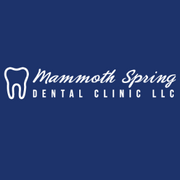
According to the National Institute of Dental and Craniofacial Research, temporomandibular joint and muscle disorders (commonly called TMJ or TMD) affect more than 10 million Americans. Although these disorders are very common, they are not always diagnosed properly due to the wide array of symptoms and areas impacted. The oral health experts at Mammoth Spring Dental Clinic in Mammoth Spring, AR, are here to explain TMD, its symptoms, and how you can find relief at the dentist.
What Is TMD & How Can It Impact You?
What Is TMD?
TMD stands for temporomandibular disorders, and is caused by inflammation, injury, or misalignment of the temporomandibular joint (TMJ). This joint is what connects your jaw to your skull, allowing you to chew in a circular motion. If it is damaged, you will experience pain or tenderness in the jaw muscles or joints when you open your mouth or chew.
What Are the Causes of TMD?
Unfortunately, there is not one specific thing that can cause TMD. Instead, many little things can add up. The most common causes include clenching or grinding the teeth, sleep apnea, excessive gum chewing, or even poor posture in the neck and upper back. An injury to the jaw and chronic inflammatory arthritis can also cause TMD and should be monitored closely.
What Are the Symptoms of TMD?
 There can be any mixture of symptoms if you have TMD, but the most common include popping, cracking, clicking, “locking” (either open or closed), stiffness, soreness, or dislocation. Lesser known but equally important symptoms include frequent headaches, migraines, earaches, and even pain in your face, neck, or under your ear.
There can be any mixture of symptoms if you have TMD, but the most common include popping, cracking, clicking, “locking” (either open or closed), stiffness, soreness, or dislocation. Lesser known but equally important symptoms include frequent headaches, migraines, earaches, and even pain in your face, neck, or under your ear.
How Can a Dentist Help?
In addition to helping you maintain good oral hygiene, your dentist can examine your jaw muscle, properly diagnose TMD, and provide solutions like dental ice packs, stretching and massaging techniques, or a night guard to prevent you clenching or grinding your teeth in your sleep. If the issue is more serious, they can also prescribe medications, physical therapy, dental splints, or surgery.
If you are experiencing any of the symptoms above, stop chewing gum and eating hard foods. As soon as you can, call (870) 625-3262 to schedule an appointment with the dentists at Mammoth Spring Dental Clinic. Their restorative dentistry experts will examine your teeth and jaw for any underlying problems and work to help you find relief. For more information on their services, visit their website.
About the Business
(2 reviews)
Have a question? Ask the experts!
Send your question

